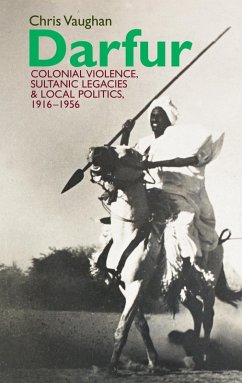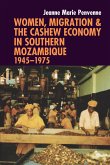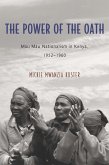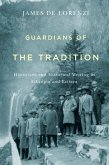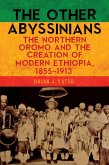The first in-depth account of Darfur's history during the Anglo-Egyptian Condominium (from 1916).
This work engages with a fundamental question in the study of African history and politics: to what extent did the colonial state re-define the character of local politics in the societies it governed? Existing scholarship on Darfur under the Anglo-Egyptian Condominium (1916-1956) has suggested that colonial governance here represented either straightforward continuity or utterly transformative change from the region's deep history of independent statehoodunder the Darfur Sultanate. This book argues that neither view is adequate: it shows that British rule bequeathed a culture of governance to Darfur which often rested on state coercion and violence, but which was also influencedby enduring local conceptions of the relationship between ruler and ruled, and the agendas of local actors.
The state was perceived as a resource as well as a threat by local peoples. Although the British did introduce significant changes to the character of governance in Darfur, local populations negotiated the significance of these innovations, challenging the authority of state-appointed chiefs, defying official attempts to police the boundaries ofethnic territories, and competing for the resources of political support and development that the state represented. Even the violence of the state was shaped and channelled by the initiative of local elites. Finally, the authorsuggests that contemporary conflict and politics in the region must be understood in the context of this deeper history of interaction between state and local agendas in shaping everyday realities of power and governance.
Chris Vaughan is Lecturer in African History at Liverpool John Moores University. Previously, he taught at the Universities of Durham, Leeds, Liverpool and Edinburgh. His articles have appeared in the Journal of African Historyand the Journal of Imperial and Commonwealth History. He is co-editor (with Lotje De Vries and Mareike Schomerus) of The Borderlands of South Sudan.
This work engages with a fundamental question in the study of African history and politics: to what extent did the colonial state re-define the character of local politics in the societies it governed? Existing scholarship on Darfur under the Anglo-Egyptian Condominium (1916-1956) has suggested that colonial governance here represented either straightforward continuity or utterly transformative change from the region's deep history of independent statehoodunder the Darfur Sultanate. This book argues that neither view is adequate: it shows that British rule bequeathed a culture of governance to Darfur which often rested on state coercion and violence, but which was also influencedby enduring local conceptions of the relationship between ruler and ruled, and the agendas of local actors.
The state was perceived as a resource as well as a threat by local peoples. Although the British did introduce significant changes to the character of governance in Darfur, local populations negotiated the significance of these innovations, challenging the authority of state-appointed chiefs, defying official attempts to police the boundaries ofethnic territories, and competing for the resources of political support and development that the state represented. Even the violence of the state was shaped and channelled by the initiative of local elites. Finally, the authorsuggests that contemporary conflict and politics in the region must be understood in the context of this deeper history of interaction between state and local agendas in shaping everyday realities of power and governance.
Chris Vaughan is Lecturer in African History at Liverpool John Moores University. Previously, he taught at the Universities of Durham, Leeds, Liverpool and Edinburgh. His articles have appeared in the Journal of African Historyand the Journal of Imperial and Commonwealth History. He is co-editor (with Lotje De Vries and Mareike Schomerus) of The Borderlands of South Sudan.
Dieser Download kann aus rechtlichen Gründen nur mit Rechnungsadresse in A, D ausgeliefert werden.

